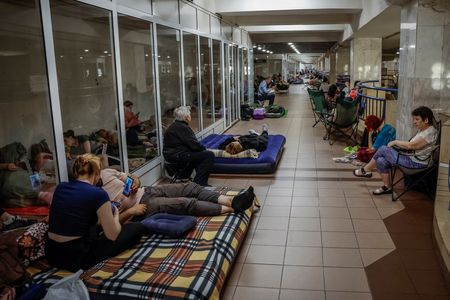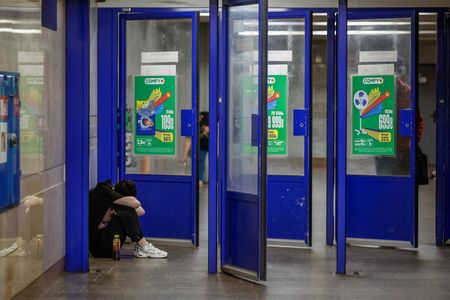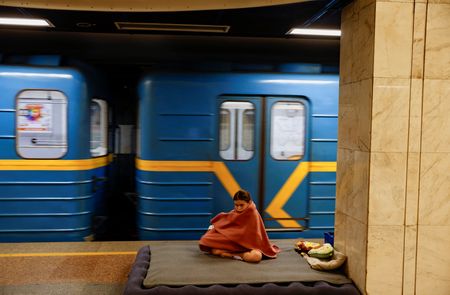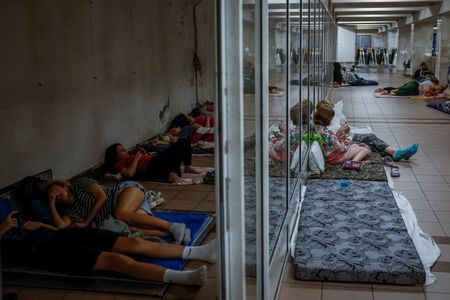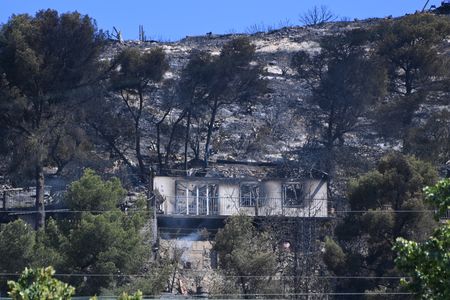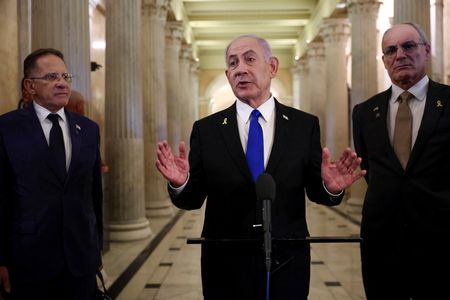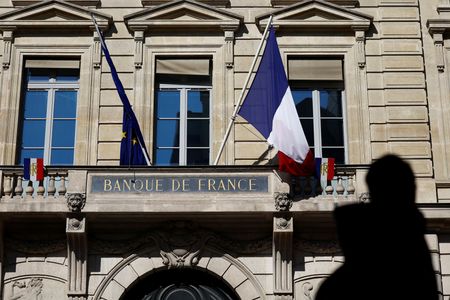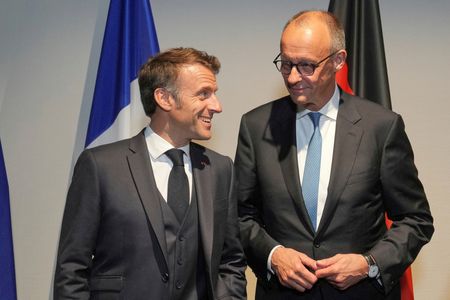KYIV (Reuters) -Russia targeted Ukraine with a record 728 drones early on Wednesday, hours after U.S. President Donald Trump pledged to send more defensive weapons to Kyiv and aimed unusually sharp criticism at Russian President Vladimir Putin.
The attack was the latest in a series of escalating air assaults in recent weeks that have involved hundreds of drones in addition to ballistic missiles, straining Ukrainian air defences at a perilous moment in the war.
Kyiv’s military downed almost all the drones but some of the six hypersonic missiles launched by Russia had caused unspecified damage, air force spokesperson Yurii Ihnat said on Ukrainian television.
Officials reported one person killed by drone debris in western Ukraine. Russia’s defence ministry said it had struck military airfields.
Closer to the battle zone, eight people were reported killed by drones and guided bombs in the Ukrainian-held part of the frontline Donetsk region.
President Volodymyr Zelenskiy, due to meet U.S. envoy Keith Kellogg in Rome ahead of a gathering of countries friendly to Ukraine, said the strike showed the need for “biting sanctions” on Russia’s income, including on countries that buy Russian oil.
Zelenskiy also met Pope Leo, who offered to host peace talks at the Vatican. Zelenskiy said this would be “entirely possible” but that it had so far been rejected by Russia.
Trump said on Tuesday he was considering supporting a bill that would impose steep sanctions on Russia, including 500% tariffs on nations that buy Russian oil, gas, uranium and other exports.
“We get a lot of bullshit thrown at us by Putin … He’s very nice all the time, but it turns out to be meaningless,” Trump said at a cabinet meeting.
When asked by a reporter what action he would take against Putin, Trump said: “I wouldn’t tell you. We want to have a little surprise.”
Separately, Europe is working on a new sanctions package against Moscow.
Trump, who returned to power this year promising a swift end to the war that began in 2022, has taken a more conciliatory tone toward Moscow in a departure from predecessor Joe Biden’s administration’s staunch support for Kyiv.
But initial rounds of talks between Russia and Ukraine have so far borne little fruit, with Moscow yet to accept an unconditional ceasefire proposed by Trump and accepted by Kyiv.
The U.S. president’s promise to supply more defensive weapons appeared to reverse a Pentagon decision days earlier to stall some critical munitions supplies to Ukraine, despite Russian attacks that have killed dozens in recent weeks.
Shortly after Wednesday’s attack, German Chancellor Friedrich Merz said that diplomatic means to resolve the war had been exhausted. He vowed to continue supporting Kyiv.
Merz said he would make an offer of air defence systems to Ukraine at the conference in Rome on Thursday.
POLAND SCRAMBLES JETS
Residents of Kyiv and other major cities spent the night in air raid shelters including metro stations.
Part of Russia’s overnight strike was aimed at a western region close to NATO-member Poland. The northwestern city of Lutsk, some 200 km (125 miles) from Poland, was the main target, Zelenskiy said, listing 10 other provinces across Ukraine where damage was also reported.
Polish and allied aircraft were activated to ensure air safety, Poland’s military said.
In Lutsk, buildings were damaged but no deaths or injuries reported in what amounted to the biggest air strike of the war on the city of 200,000 people, regional authorities said.
A storage facility of a local enterprise and some parking structures were ablaze, said the city’s mayor, Ihor Polishchuk.
Ivan Rudnytskyi, governor of the Volyn region that includes Lutsk, said 50 Russian drones and five missiles were in the region’s airspace overnight.
(Reporting by Yurii Kovalenko, Lidia Kelly and Alexandar VasovicEditing by Frank Jack Daniel and Peter Graff)

